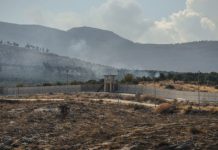
International and local humanitarian organizations operating in Syria have expressed concern about the failure of the UN Security Council to extend the authorization of the humanitarian cross-border mechanism in Syria, Reliefweb reported on Wednesday.
“Members of the Security Council have put politics ahead of the lives of Syrian civilians who are in urgent need of life-saving assistance – 80% of them being children and women of all ages,” the humanitarian organizations said.
The UN Security Council on Tuesday failed to renew authorization of the delivery of humanitarian aid to Syria’s rebel-held northwest from neighboring Turkey, officially ending a UN operation that had been vital to helping a region of 4.1 million people. The region was also hit by devastating earthquakes in early February.
“Since the earthquakes, 2,700 trucks have crossed through Baba Al-Hawa and so essential humanitarian services risk being severely impacted by the lack of authorization,” NGOs said.
The council was not able to adopt either of two rival resolutions to authorize further deliveries through the Bab al-Hawa border crossing, where the latest six-month mandate expired on Monday.
A 7.8-magnitude earthquake that struck near the Turkish city of Gaziantep – home to around 2 million people and on the border with Syria – as people were sleeping on Monday was followed by dozens of aftershocks, including a 7.5-magnitude temblor that jolted the region in the middle of search and rescue efforts the same day.
The Syrian leader, Bashar al-Assad, agreed to open two border crossing points in February for three months to allow in a greater volume of emergency aid for victims of the earthquakes.
The three-month period expired in mid-May, and the Syrian government extended it until August 13.
The UN said it would continue to use those crossings to deliver aid, The Associated Press (AP) earlier reported.
UN spokesman Stephane Dujarric told The AP that 85 percent of UN aid to the northwest went by truck through Bab al-Hawa, which is closest to those in need, and that “we’re not going to be able to match that” amount through the two crossings still available.














